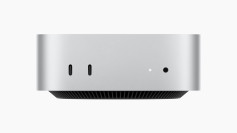Google has agreed to delete or de-identify billions of records of web browsing data collected when users were in its private browsing "Incognito mode," according to a proposed class action settlement filed Monday in a California federal court. The settlement, which could apply to 136 million Google users if approved by the judge, also mandates greater disclosure from the company about how it collects information in Incognito mode and puts limits on future data collection.
The 2020 lawsuit, Brown v. Google, was brought by Google account holders who accused the company of illegally tracking their behavior through the private browsing feature. The proposed settlement is valued at $5 billion, according to the court filing, calculated by determining the value of data Google has stored and would be forced to destroy and the data it would be prevented from collecting.
Under the terms of the settlement, Google must address data collected in private browsing mode in December 2023 and earlier. Any data that is not outright deleted must be de-identified. The plaintiffs wrote in the proposed settlement filing that the agreement "ensures real accountability and transparency from the world's largest data collector and marks an important step toward improving and upholding our right to privacy on the Internet."
Google spokesperson José Castañeda stated that the company is "pleased to settle this lawsuit, which we always believed was meritless." He clarified that while the plaintiffs valued the proposed settlement at $5 billion, which was the amount they originally sought in damages, they are "receiving zero." The settlement does not include damages for the class, though individuals can still file claims.
"We never associate data with users when they use Incognito mode," Castañeda added. "We are happy to delete old technical data that was never associated with an individual and was never used for any form of personalization."
As part of the agreement, Google will make changes to how it discloses the limits of its private browsing services, which the company has already begun rolling out on Chrome. Additionally, Google has agreed to let users block third-party cookies by default in Incognito mode for five years, preventing the company from tracking users on outside websites while they're in private browsing.
David Boies, the attorney representing the consumer plaintiffs, called the settlement "a historic step in requiring honesty and accountability from dominant technology companies" in a statement. He emphasized that the settlement requires Google to delete and remediate the improperly collected data "in unprecedented scope and scale."
Individuals can still file claims for damages in California state court, according to the settlement terms, with 50 claims already filed.
The settlement highlights the ongoing concerns over privacy and data collection practices by major tech companies. As users become increasingly aware of the potential for their online activities to be tracked, even when using private browsing features, lawsuits like Brown v. Google serve as a reminder of the importance of transparency and accountability in the handling of user data.






